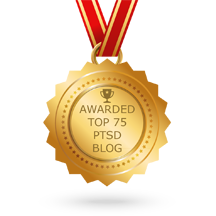Welcome to the Almost 100% Dominated Facebook Universe. 50% of the Stateside population is on it. The CEO says "we want everyone to be connected". Translation: global domination is good for you? It's certainly good for his portfolio.
Onto to other things. So much triggering stuff is out there that we thought we'd pass on some hopefully helpful security tips to protect your balance. If you have more or something that you think is better, please post a comment.
9 corporations control everything that the public reads/sees/listens to in the States. Overseas you have state run media (which does a better job in many cases). But the problem is that in many major countries (in our opinion), these outlets are almost as bad as the MSM.
What's the solution? A classic hacker approach. No, not hack their main site. Instead, think content from a trauma survivor's perspective.
If you want to know your favorite team's results from last night, do you go to the corporate MSM site with "The Latest on Tiger Wood's Day" hourly updates? No. Go to the team's site (or the league's) and bypass all the rubbish. You get only what you need.
The same idea can be applied to lots of other examples. Think of it as selective activism and protection all at once. You don't contribute to a triggering sources' profit margin (profit being money earned from ads, hit and view rates and more). Somebody does pay attention to this stuff. So hit them where they're most vunerable.
Next, when posting content, try to avoid as many clues as possible that someone can connect. Hackers or the govt. agencies that do this "data mine". They have computers that sort thru tons of information looking for key words or phrases to connect. Then they'll label you as a subversive, terrorist, or who knows what else.
In our case, we say to these people, if you want to out us that badly, work for it.
Don't freak out about it. Instead, try to think of ways that someone could get your personal information. Then, block each step by changing passwords, editing content or being careful with links.
Despite what the govt. experts and online security firms tell you, anything can be hacked. It's a matter of time, skill and code writing ability. Therefore, take all the steps you can to protect yourself.
Check the Tony Benn link in our link section. It has some good ideas about fighting to be heard. Not only to protect your political rights, but also your right to be heard as a trauma survivor.
Time for dinner.
Subscribe to:
Post Comments (Atom)





No comments:
Post a Comment